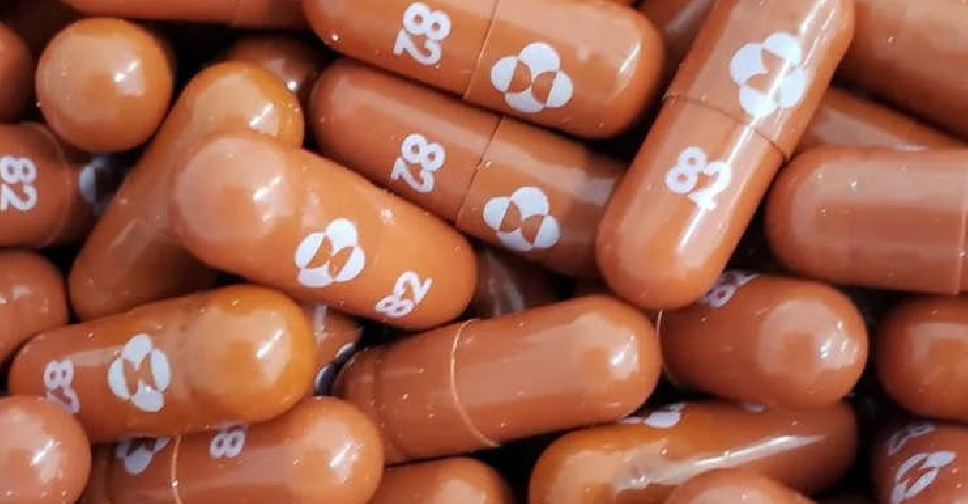
India gave emergency use authorisation (EUA) for Merck's COVID-19 pill molnupiravir, and Serum Institute of India's Covovax and Biological E's Corbevax coronavirus vaccines, the country's health minister said on Twitter.
Molnupiravir will be manufactured in India by 13 companies for restricted use under emergency situation for treatment of adult patients with COVID-19, Health Minister Mansukh Mandaviya said.
Earlier this year, drugmakers Aurobindo Pharma, Cipla, Sun Pharmaceuticals and some others signed non-exclusive voluntary licensing agreements with Merck to manufacture and supply molnupiravir in India.
Last week, the US FDA issued an EUA to molnupiravir for the treatment of mild-to-moderate coronavirus disease in adults.
Media reports earlier in the day said the subject expert committee under the Central Drugs Standard Control Organisation recommended allowing EUA for molnupiravir, Covovax and Corbevax.
India is working on ramping up oxygen supplies and strengthening health infrastructure to contain a possible surge of COVID-19 cases due to the Omicron variant.
The country has administered 1.43 billion COVID-19 vaccine doses so far, with more than 839 million of all adults having received at least one dose.
India plans to start administering COVID-19 booster shots as a precautionary measure to healthcare and frontline workers from January 10 and will begin vaccinating those aged 15-18 from January 3.
Medical experts have said India needs to double down on its vaccine campaign and some states have imposed night curfews and other restrictions as a precaution in the run-up to New Year festivities to prevent a spike in infections and a repeat of summer 2021 when a devastating second wave of infections left tens of thousands dead.

 UK inquiry finds 'chilling' cover-up of infected blood scandal
UK inquiry finds 'chilling' cover-up of infected blood scandal
 Iranian President Raisi killed in helicopter accident, state media says
Iranian President Raisi killed in helicopter accident, state media says
 ICC prosecutor seeks arrest warrants for Israeli, Hamas leaders
ICC prosecutor seeks arrest warrants for Israeli, Hamas leaders
 Assange given permission to appeal against US extradition
Assange given permission to appeal against US extradition
 Israel intends to broaden Rafah sweep, Defence Minister tells US
Israel intends to broaden Rafah sweep, Defence Minister tells US




